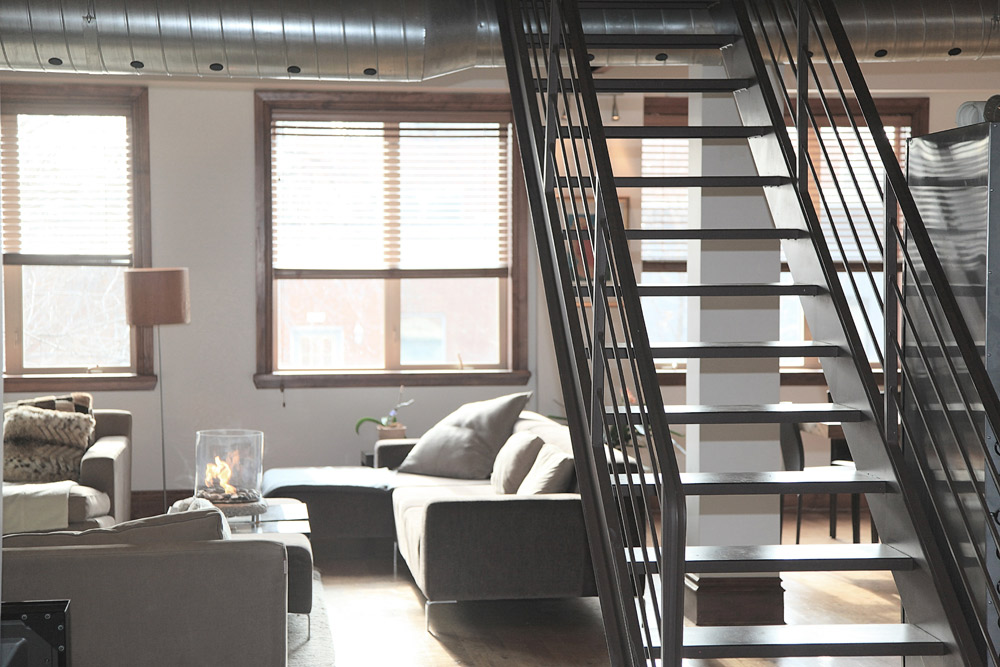Making the Right Moves — When It’s Time to Move
Moving is just a part of life — not just for owners of suburban single-family homes, but also for residents of downtown Chicago condos. People get new jobs, move in with a significant other, and upsize (or downsize) to a home better suited for their lifestyle. Whatever the reason may be, when the time comes to move, it’s important to consider the many details that must be navigated.
Apart from deciding where you’re moving to, one of the most significant considerations for a downtown homeowner will be selling your condo. To help you navigate this process and get a better picture of what’s involved, we’ve put together some insights on everything from the costs you could expect to whether you should just rent the condo out. Let’s dig in!
Should You Sell Your Condo or Rent it Out?
Downtown Chicago real estate is competitive. With ample professional opportunities, exciting nightlife, numerous educational institutes, and vibrant arts and cultural communities, living in downtown Chicago is a thrilling prospect for many — and many want to make it their home.
If you’re interested in selling your condo, you might find yourself facing a certain conundrum: should you just rent it outinstead? If you do, you’ll be able to continue making payments on that condo’s mortgage while building a strong credit history as well as making some profit off the rent. But first, you need to determine whether you’re even allowed to rent out your unit.
Every condo association is different, and you’ll need to check with your association board to see if this is an option. If it is, then you’ve cleared the first major hurdle and can start working on additional details, such as:
- Obtaining a lease agreement and rental application
- Securing an attorney to review your documents
- Obtaining proper insurance coverage
- Reviewing the impact renting could have on your taxes
- Determining the rental price of your condo
- Finding an avenue for tenant background checks
Once you’ve completed these items, you’ll be on your way to renting out your current condo and moving on to your next home. But keep in mind that selling your condo provides you with the equity you’ve built in it over the years (equity is the difference between its value and the balance of any mortgage you have on the property). Those funds can replace what you may have put down on your next home, supplement existing savings, or be used to make any upgrades to your new condo.
What Costs are Involved With Selling Your Condo?
If you’ve decided to sell, it’s time to consider the costs of selling a condo. A variety of fees and charges are applied to the sale of real estate. The agent representing you in the sale will be able to assist you in getting an idea of what your costs will be, and the final costs will be listed on your seller’s Closing Disclosure.
Here’s a quick rundown of some of the costs you’ll be responsible for when selling your condo:
- Commission for a real estate agent (4–6%, split between buyer and seller agents)
- Loan payoff costs such as any prorated interest or potential prepayment penalties
- Title transfer taxes
- Title insurance fees
- Attorney fees
- Prorated property taxes or association dues
- Home warranty premium (if applicable)
- Bills for negotiated repairs
Finally, you should consider the costs that you incurred personally to prepare the home for sale. If your condo needed some repairs to get it into shape, that’s still an expense worth including in the tally. Overall (and very much in general), it’s safe to assume that you’ll pay anywhere from 8% to 10% of the sale price of the condo in fees. Of course, that depends on where you live, the sale price itself, your agent’s commission, and other negotiables.
Tips for Staging a Condo to Influence Buyers
Once you’ve considered the costs, you can begin the process of staging your condo for sale. Staging is an important part of the home sale process. It presents your home to prospective buyers in the best light possible, showcasing what the home looks like when furnished, decorated, cleaned, and so on. More importantly, it can help your condo sell faster than homes that weren’t staged.
With most buyers looking for homes online before seeing them in person, it’s important that you capture interest right away. Buyers are immediately drawn to photos before the fine details of the home, and staging ensures that your condo gives off a great first impression. When you work with an agent to sell your condo, they’ll make recommendations that appeal to prospective buyers.
Your agent may also suggest using the services of a local staging company. These types of companies and professionals can capture the feel of a home perfectly for prospective buyers to picture what the home would look like fully furnished. While the cost to stage a home can vary, the result is often well worth the price tag: the quick sale of your condo with potentially fewer concessions or low-ball offers.
Get the Word Out With These Condo Advertising Ideas
Once you’ve found an agent (perhaps one of these talented individuals?), have listed your condo, and perhaps even had it professionally staged, it’s time to let people know about it! Your agent will take full advantage of their professional marketing resources to share the property with potential buyers, but what about you? What can you do to spread the word? Here are some condo advertising ideas to get you started.
Make Full Use of the Web
While your agent will get your home onto popular real estate platforms such as Zillow, Realtor.com, and others, there’s plenty more that you can do — especially with social. Share your condo’s listing on all your social networks. Tell a story about it on Facebook. Create an Instagram collage or Pinterest board with the same photography as the listing. Do a live walk-through of your condo on Facebook Live or Instagram Stories.
Use Your Networks
Put your friends and family to work! Send them a link to the property online and ask them to share it. Encourage them to share it on their social networks and to keep an ear out for any coworkers in their professional spheres that might be interested in downtown Chicago condo.
Host Your Own Open House
While your agent may host an open house or broker open, one open house of your own could be all it takes. Invite coworkers, friends, family, neighbors, and so on. Provide light refreshments and snacks. Consider having your agent on hand as well should any specific questions arise.
How do Appraisers Choose Comps for Condos?
Once you’ve received an offer on your condo, the buyer will begin navigating the steps of the homebuying process. Ideally, you and your agent will have worked with a fully pre-approved buyer that demonstrated the ability to buy quickly. This ensured you were able to proceed with the financial process with minimal risk of the buyer’s financing falling out.
Toward the end of the process, the buyer will order an appraisal on the condo to determine its value. It’s worth knowing how this works because as the seller, you most likely won’t see your condo’s appraisal or learn its appraised value. The only time you might see the appraisal is if the value comes in under the agreed-upon sale price, in which case you can either challenge the appraisal or accept the new value.
Part of the appraiser’s job is to select and evaluate comparable home sales (aka, “comps”), which in the case of a condo, must be taken from both the neighborhood as well as the condo’s subdivision or project. A third comp will also be selected, preferably within your condo’s building since it’ll be closer to yours regarding style, layout, construction, etc. than others. The appraiser will evaluate characteristics of the comps, including the number of rooms, gross living area, style of the home, and its condition to determine a final figure.
Learn More About Selling Your Condo
Tell us what you’re looking to achieve, and one of our talented team members will be in touch.












